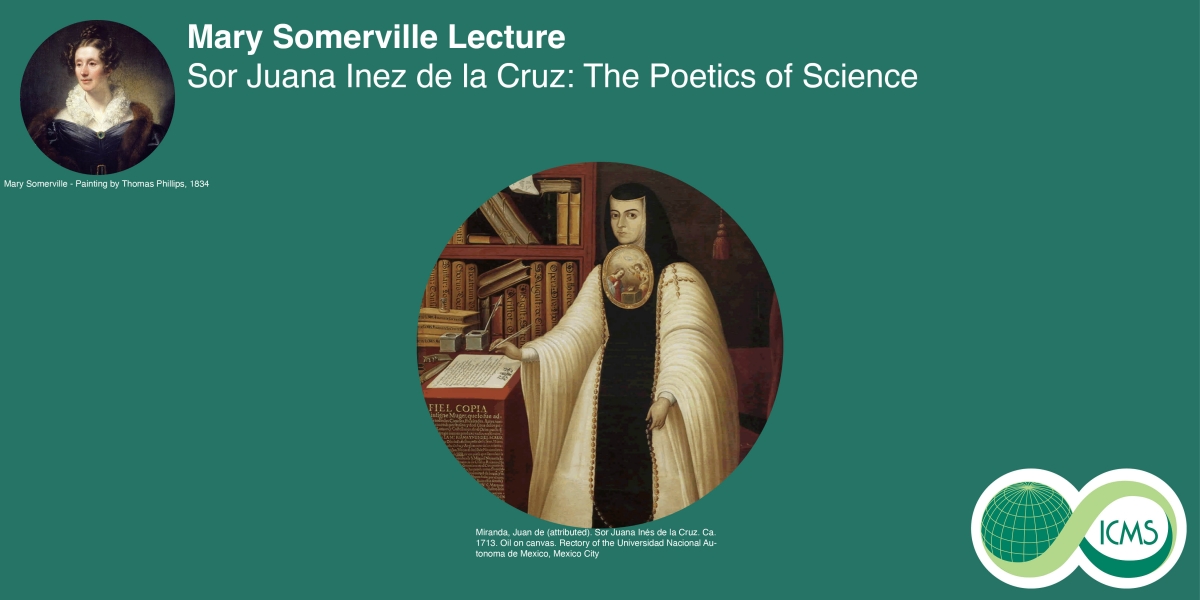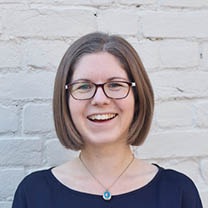About:

Mary Somerville (1780-1872) was an eminent Scottish scientist of the 19th century. She made important contributions in mathematics and astronomy, such as her paper 'On the magnetizing power of the more refrangible solar rays' in the Philosophical Transactions of the Royal Society in 1826. She was one of the first two women to be elected to the Royal Astronomical Society in 1835 (the other was Caroline Herschel). Her outstanding science was inextricable from her powers of exposition as might be seen in her beautiful book On the Connexion of the Physical Sciences (1834), a best-seller that went through many editions and is often regarded as the first 'popular science' book. Remarkably, the third edition of the book (1836) and subsequent ones contained a discussion, based on tables of observation, about the possibility of an unknown planet perturbing Uranus. This led to the subsequent precise prediction of the position of Neptune by John Couch Adams in 1845.
This lecture series for the general public on high-level topics at the interface of mathematics and other domains of inquiry commemorates the work and life of Mary Somerville.
About the talk:
Sor Juana Inés de la Cruz (Mexico, 1651-1695) was one of the most renowned poets of the late Hispanic Baroque, with her works widely published and performed both in Spain and in the Americas. Her literary pursuits, however, were only one aspect of her multifaceted intellectual interests. Throughout her works, she demonstrates a remarkable engagement with contemporary thought in mathematics and natural philosophy (the precursors to the modern day ‘sciences’), especially in the fields of optics, mechanics, cosmology, and biology. For Sor Juana, however, as for many early modern thinkers, these areas of enquiry were in no way contradictory or even separate. Indeed, following the medieval tradition of the liber mundi (book of the world), she sought to ‘read’ the natural world as a book and, conversely, to imbue her literary creations with the ideas she accessed in her substantial library. This talk will explore the correspondences in her works between scientific enquiry and poetic creativity, and ask how the early modern vision of a universe replete with connections can illuminate our own understanding of the relationship between the modern-day humanities and sciences.
About the speaker:

Alice Brooke, University of Oxford with the assistance of Minhyong Kim, ICMS
Alice Brooke is Associate Professor of Spanish Golden Age Literature at the University of Oxford and Tutorial Fellow in Spanish at Merton College. Her research and teaching interests focus on the literature and culture of the seventeenth-century Hispanic world, in particular New Spain (present day Mexico). She has a special interest in women’s writing, the works of Sor Juana Inés de la Cruz, and religious cultures. She is the author of several articles on Spanish Golden Age drama and poetry. Her first book The autos sacramentales of Sor Juana Inés de la Cruz was published by Oxford University Press in 2018. A new translation and critical edition of Sor Juana’s correspondence, Critique of a Sermon and Other Writings is forthcoming with Liverpool University Press (2024).
Minhyong Kim is the Director of the ICMS. He researches arithmetic geometry, topology, and mathematical physics. He has written 8 books on mathematics for the general public, a number of which have been best-sellers in South Korea.
